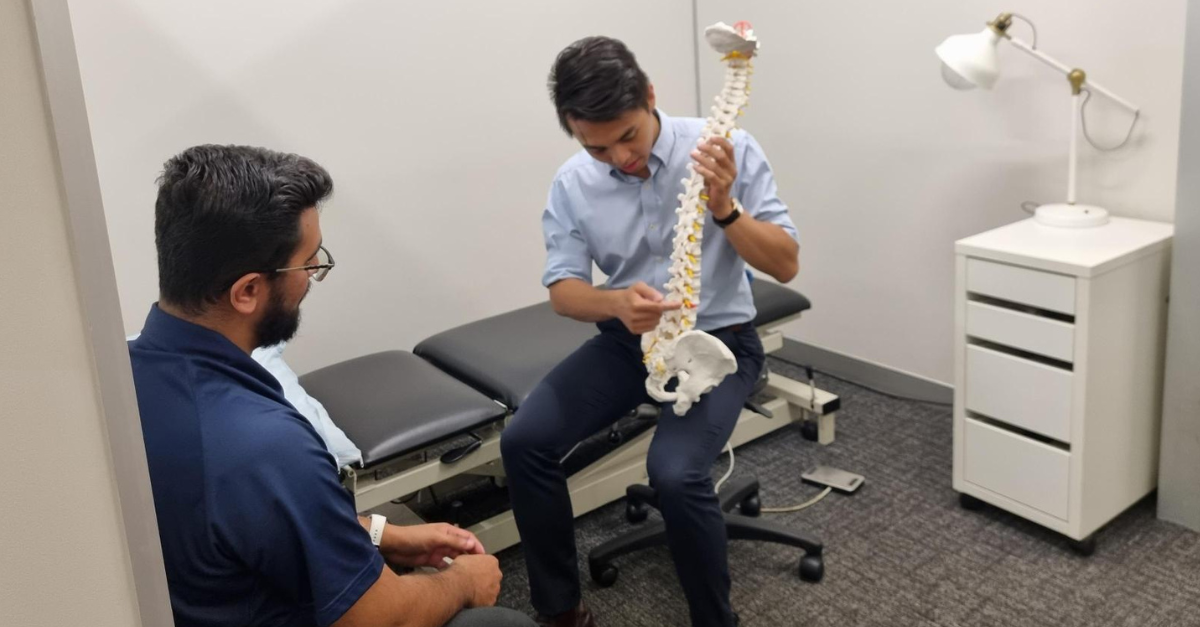Make an Appointment
Whether you’re looking for a new job, you’re making a career change, or you’re jumping to an entirely new industry, identifying your soft skills and transferable skills are key to landing work.
While soft skills and transferable skills are often used interchangeably, here, we’re going through the subtle differences between them and how you can use both soft skills and transferable skills to your advantage.
In this guide, you’ll learn:
- What are transferable skills?
- What are Hard and soft skills?
- What are the most common transferable skills?
- What are some examples of soft skills?
- How should I list my hard and soft skills on a resume?
What are Transferable skills?
Transferable skills, as the name suggests, are any skill that can be transferred from one job to the next (or one career path to another). They can fall into two main categories; Hard Skills or Soft Skills.
As a general rule of thumb, any skill that isn’t super specific to your current job or career that you can bring with you into any field is a transferable skill.
What are Hard Skills?
Hard skills specifically refer to technical abilities such as Massage Therapy or Yoga Instruction. However, hard skills that are also transferable skills include skills such as learning how to use Microsoft Suite, Photoshop or Zoom.
What are Soft skills?
When it comes to a soft skills definition, they’re most often referred to as personality traits or habitual patterns that are seen as strengths in the workplace. For example, leadership and managerial skills.
Soft skills are often non- tangible and are difficult to measure. They can also fall into the shadows since they’re not something you necessarily learn. Some of us might not even think of them as skills.
On the contrary, soft skills are likely the most important skills to have. Not only do soft skills set you apart from the pack, but they’re also absolutely necessary for workplace success.
Plus, all soft skills are transferable across fields and industries. In other words, they have incredible staying power.
Let’s dive a bit deeper into why transferable skills and soft skills are incredibly important to long-term career success.
Why are transferable skills important?
Transferable skills seem to become more and more important as the years go on. With technological improvements changing every industry at a rapid pace, having a handful of transferable skills that can guide you through a career change is needed now more than ever.
Again, the interesting thing about transferable skills is that they are sometimes hard skills.
For example, proficiency with Microsoft Excel is a tangible, hard skill that’s also transferable to many industries. Fluency in a foreign language is also a hard, transferable skill.
Knowing how to teach is a transferable skill that’s often more important than the content of what you’re teaching. In other words, it’s a hard skill but also super flexible. Writing is the same. Knowing how to write with proper grammar and in a certain style is also more important than what you’re actually writing about.
As we mentioned, transferable skills include all soft skills. Soft skills are super transferable which is partly why they’re so important to cultivate. However, gaining hard, transferable that can be used across many fields is an aspect of transferable skills that you may want to consider.
Why are soft skills important?
Soft skills are incredibly important to cultivate. These are the skills you can bring into every facet of your life that can help you stand out in an oversaturated job market.
Having strong leadership skills or amazing communication skills will always be beneficial, no matter what job, career, or industry you might land in.
Sure, it’s important to have hard skills as well. But if you don’t focus any attention on your soft skills, it’s likely that the hard skills won’t matter as much.
For example, if one candidate is a social media whizz but has zero interpersonal skills while another candidate has more to learn about social media but is extremely organised with an undeniable work ethic, guess who’s going to get the job.
Soft skills are often more important than hard skills. After all, who would you rather work with?
The tricky part is that, in some cases, soft skills are more difficult to gain as many of them are natural abilities or personality traits. So, the idea here is to embrace your unique strengths and highlight the soft skills that you do possess.
So, while you might not be able to learn to be a leader in the same way as you could learn to use Zoom or Slack, you might instead focus on your ability to work in a team and take direction from a good leader.
You don’t have to do it all. Instead, understand the importance of the soft skills you do bring to the table and explore how your individuality can help you in every stage of your career.
What is the difference between Hard Skills and Soft Skills?
Simply put, hard skills are tangible skills. Soft skills are personality traits.
For example, a hard skill might be your physiotherapy certification or electrical engineering proficiency. Hard skills are measurable and can help you identify what products or services you might provide.
These are also often the skills listed in a job description when you’re searching for your next position.
Soft skills, on the other hand, are skills like the ability to manage conflict or how well you stay organised. They’re a lot less measurable and sometimes overlooked. However, especially when it comes to a career change or pivoting within your current industry, soft skills are a must.
Both hard skills and soft skills are important. Therefore, anyone in the workplace would do well to focus their attention on both.
Again, you can work on both learning new hard skills in a tangible way and embracing your patterns and traits that can be used well in any situation.
What are the Most Common Transferable Skills and Soft Skills?
What are some soft skills that you might want to shed light on? What are some common transferable skills I might have?
Here, we’re sharing our lists of soft skills and transferable skills to help you build your new resume. You might be surprised at how many you have that you may have been overlooking.
Soft Skills List
- Delegating
- Teamwork
- Leadership
- Organisation
- Time Management
- Effective Communication
- Research and Analytical Skills
- Managing Conflict
- Work Ethic
- Flexibility
- Problem-Solving
- Integrity
- Follow-Through
- Creativity
- Fast-Learner
Transferable Skill List
- All soft skills
- Foreign Language
- Computer Program Proficiency (for example, Microsoft Word, Microsoft Excel)
- Teaching and Coaching
- Writing
- Public Speaking
Remember, you don’t have to have every skill on this list to be the right candidate for many jobs in many fields. In fact, some skills are contradictory and each has its respective place in making an operation run smoothly.
For example, every business needs strong leaders and strong team players. Every team needs someone that’s a people person and others who can work well on their own. Every industry requires good public speakers and good writers.
The point is, you often won’t be amazing at both ends of the spectrum. So, be honest and focus on what you’re truly good at. Soon enough, you’ll find where you fit. This understanding will serve you well in your job search too.
Clearly, this is not an exhaustive list of soft skills or transferable skills. In fact, the more creative you can get about your soft and transferable skills, the more you’ll stand out in the job market.
Let these lists get the juices flowing. You might be surprised at how many transferable and soft skills you actually have.
How do I Add Soft Skills and Transferable Skills to my Resume?
Once you identify your unique set of soft skills and transferable skills, it’s time to add them to your new and improved resume.
First of all, you won’t want to simply list everything out. How boring! Instead, incorporate your soft skills in your job descriptions alongside your hard skills.
For example, if you’ve been a junior physiotherapist for the last three years, you might include:
- Physiotherapy certification information
- Specific physiotherapy-related hard skills like massage therapy or exercise therapy
- Specific transferable hard skills like managing clients on Microsoft Excel
- Specific soft skills like interpersonal skills, time management skills, and leadership skills. However, this combination might look different for someone with different soft skills. With the same hard skills, another junior physiotherapist might include specific soft skills such as:
- Problem-solving skills, health data analysis, and ability to work effectively under pressure
These are just a few examples of how neither set of soft skills are better or worse. They’re simply different and reflect each unique individual. The best part about soft skills is that they are so specific to the person they describe and can set you apart from other job seekers in your field.
Although leadership and extroversion are often celebrated in modern society, we should also embrace our quieter, focused natures as well, if that’s what’s true for you. In other words, there’s no need to be like everyone else.
Your unique talents and experience are what makes you the right person for a certain position. Not everything will match, but if you embrace your true soft skills and communicate them clearly and with confidence, it can lead you to the career that’s right for you and your temperament.
Check out CEO and Founder of Physio Inq, Jonathan Moody talk about the importance of hiring
Transferable and Soft Skills on Channel 7’s Sunrise
Identifying Soft Skills and Transferable Skills
So, how do you identify your soft skills? How do you know which skills are transferable and which ones aren’t?
Well, it’s not a scientific process but we do have some tips on identifying your soft and transferable skills to add to your resume.
Go through the following steps to help identify your Soft and Transferable Skills
- List out your daily responsibilities in each job you’ve held previously, including the job you have now.
- Think about what was necessary to complete each task within your daily responsibilities.
- Ask yourself questions like:
- Am I most comfortable leading or taking directions?
- Do I often find myself pitching ideas or getting down to business?
- Can I communicate best through writing or speaking?
- Am I better at customer service or administrative tasks?
- From there, you might pull out some soft skills. For example:
- Leadership or Team Player?
- Creative or Strong Work Ethic?
- Strong Written Communication or Strong Verbal Communication?
- People Person or Highly Focused?
You might not have every single soft skill or transferable skill out there. Of course, not! The point is to find the personality traits and habits that make you a pleasure to work with and an effective employee or partner.
It’s important to be honest about your strengths and weaknesses in the same way you’d assess your hard skills. Some of us are leaders and some of us are not. There’s a place for everyone.
And besides, mastering a handful of soft skills that you confidently bring to your work is usually more advantageous than a tone of mediocre soft skills. Let your personality shine through and make it known what you bring to the table.
How to List Hard and Soft Skills on a Resume
If you’re wondering how to transfer your skills to a new career, it’s time to look at your soft skills and transferable skills.
Listing Your Skills on Your Resume:
On a resume, typically, you’ll want to clearly express the hard skills you’ve acquired that are relevant to the job you seek. Then, you should integrate your powerful soft skills within the framework of your hard skills to communicate both.
In other words, you don’t want to make a separate list of hard skills and soft skills on your resume. Either blend your hard and soft skills in a curated “skills” section of your resume or sprinkle in your soft and transferable skills within your past experience descriptions.
The biggest resume mistake people often make is highlighting only their hard skills instead of their soft skills. Being aware of your soft and transferable skills will help to make sure they’re just as prominent on your resume.
The truth is, your hard skills, soft skills, and transferable skills naturally blend together in your day-to-day activities. So, when building a resume, be sure to highlight the soft skills that make you right for the job, just as much as you would your hard skills.
Date Published: Tuesday, November 3, 2020
Date Modified: Tuesday, July 16, 2024
Need to get into direct contact with ur Client Services team? We're all ears. Call our team directly on 1300 731 733



